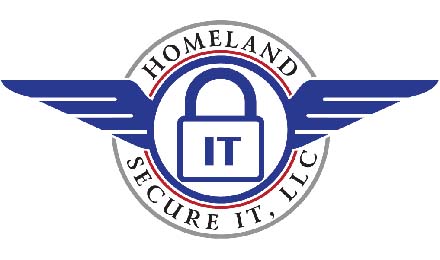Homeland Secure IT Alert for Tuesday, March 22, 2011
Apple Mac OS X owners will be happy to know that they have not been forgotten and that 57 vulnerabilities that affect all current versions of OS X 10.5.x (Leopard) and OS X 10.6.x (Snow Leopard) are addressed in this major security update.
A total of 26 components that ship as a part of OS X and OS X Server, including five for Quicktime, ClamAV and Apache are affected. In short, there exists many code execution vulnerabilities, Denial of Service (DoS) & cross-site scripting flaws, as well as information disclosure issues which this update will help protect you from. Suggested action – install all necessary updates as soon as possible, keep current anti-virus on your computer and avoid opening links and documents sent in email that you are not expecting.
Here’s the post from the WatchGuard site:
WATCHGUARD SECURITY ANNOUNCEMENT:
Summary:
- These vulnerabilities affect: All current versions of OS X 10.5.x (Leopard) and OS X 10.6.x (Snow Leopard)
- How an attacker exploits them: Multiple vectors of attack, including enticing your users to visit a malicious web site, or into downloading and viewing various documents or images
- Impact: Various results; in the worst case, an attacker executes code on your user’s computer
- What to do: OS X administrators should download, test and install OS X 10.6.7 or Security Update 2011-001 as soon as possible, or let Apple’s Software updater do it for you.
Exposure:
Today, Apple released a security update to fix vulnerabilities in all current versions of OS X. The update fixes around 57 (number based on CVE-IDs) security issues in 26 components that ship as part of OS X or OS X Server, including Apache, Quicktime, and ClamAV. Some of the fixed vulnerabilities include:
- Multiple ImageIO Buffer Overflow Vulnerability. ImageIO is one of the components that helps OS X handle various image file types. Unfortunately, it also suffers from various security vulnerabilities involving the way it handles certain types of image files (such as a buffer overflow vulnerabilities). Though these vulnerabilities differ technically, they generally share the same scope and impact. If an attacker can get a victim to view a specially crafted image file (perhaps hosted on a malicious website), he could exploit any of these flaws to either crash an application or to execute attack code on the victim’s computer. By default, the attacker would only execute code with that user’s privileges. The affected image types include JEPG, TIFF, and XBM.
- Many ATS Vulnerabilities. The Apple Type Service (ATS) helps OS X machines handle fonts. ATS suffers from various memory related vulnerabilities having to do with the way it handles certain types of embedded fonts. By tricking one of your users into downloading and viewing a malicious document containing a specially crafted font, an attacker can exploit this flaw to execute code on that user’s computer. By default, the attacker would only execute code with that user’s privileges.
- Five Quicktime Vulnerabilities. Quicktime is the popular video and media player that ships with OS X (and iTunes). Quicktime suffers from five security issues (number based on CVE-IDs) involving how it handles certain image and video files. While the vulnerabilities differ technically, they share the same basic scope and impact. If an attacker can trick one of your users into viewing a maliciously crafted image or video in QuickTime, he could exploit any of these flaws to execute code on that user’s computer, with that user’s privileges.
Apple’s alert also describes many other code execution vulnerabilities, as well as some Denial of Service (DoS) flaws, cross-site scripting (XSS) vulnerabilities, and information disclosure flaws. Components patched by this security update include:
| AirPort | Apache |
| AppleScript | ATS |
| bzip2 | CarbonCore |
| ClamAV | CoreText |
| File Quarantine | HFS |
| ImageIO | Image RAW |
| Installer | Kerberos |
| Kernel | Libinfo |
| libxml | Mailman |
| PHP | QuickLook |
| QuickTime | Ruby |
| Samba | Subversion |
| Terminal | X11 |
Please refer to Apple’s OS X 10.5.x and 10.6.x alert for more details.
On a related note, Apple has released many security updates in the last few weeks. Besides the Java update we alerted about early this month, Apple has also posted the following security-related product updates:
- Apple TV 4.2
- Safari 5.0.4 forOS X and Windows
- iOS 4.3 for iPhone, iPad, and iPod
If you use any of those products, we recommend you update them as well, or let Apple’s automatic Software Updater do it for you.
Solution Path:
Apple has released OS X Security Update 2011-001 and OS X 10.6.7 to fix these security issues. OS X administrators should download, test, and deploy the corresponding update as soon as they can.
- Security Update 2011-001 (Leopard)
- Security Update 2011-001 (Leopard Server)
- OS X 10.6.7 Update
- OS X 10.6.7 Update for early 2011 Macbook Pro
- OSX Server 10.6.7 Update
- OS X 10.6.7 Update Combo
- OSX Server 10.6.7 Update Combo
Note: If you have trouble figuring out which of these patches corresponds to your version of OS X, we recommend that you let OS X’s Software Update utility pick the correct updates for you automatically.
For All Users:
These flaws enable many diverse exploitation methods. Some of the exploits are local, meaning that your perimeter firewall never encounters the attack (unless you use firewalls internally between departments). Installing these updates, therefore, is the most secure course of action.
Status:
Apple has released updates to fix these flaws.
References:
This alert was researched and written by Corey Nachreiner, CISSP. (@SecAdept)
—
If you require assistance with these updates or any others on your Apple Mac OS X system, Microsoft Windows workstation or server or have any other network computer security questions or issues in the Greenville, Upstate SC area, please call 864.990.4748 or email info@homelandsecureit.com


